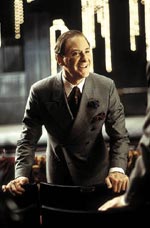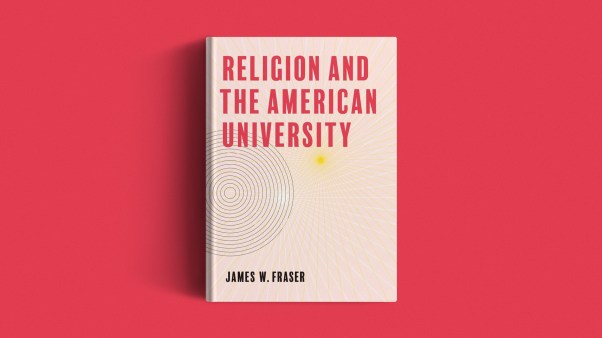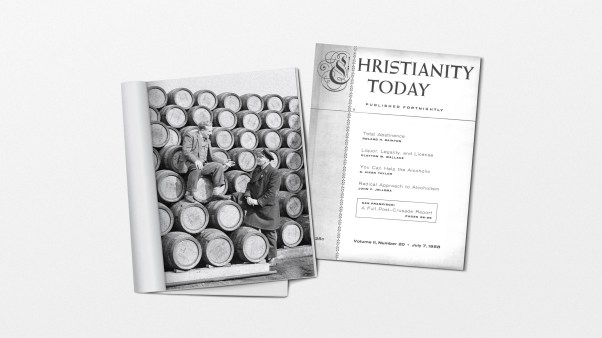 |
Cole Porter left an indelible mark on the musical landscape of America. Thanks to his movies, plays, and the patronage of great vocalists like Ella Fitzgerald, it’s almost impossible to grow up here and not recognize at least a few of his tunes …
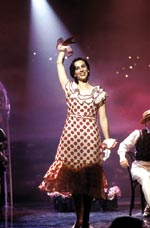
“Birds do it, bees do it / Even educated fleas do it / Let’s do it, let’s fall in love / In Spain, the best upper sets do it / Lithuanians and Letts do it / Let’s do it, let’s fall in love.” When you’re humming that tune later on today you can blame me.
De-Lovely pays lively tribute to this music and the man who created it. It unfolds as an elderly Porter (Kevin Kline) sits in a darkened theater with a man named Gabriel who is directing the story of his life on the stage in front of them. De-Lovely employs an inventive combination of form and substance that jumps from song and dance numbers on the simple set in front of the pair, to parties in Paris, to Broadway rehearsals and back to Porter and Gabriel in the dark theater for commentary.
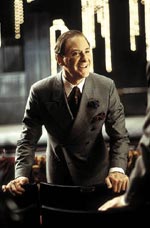
“If I believed in God, he’d have to be a song and dance man. He’d have to carry a tune, preferably one of mine.” Porter was rarely shy about his own talents.
The movie follows the arc of Porter’s relationship with his wife of 35 years, Linda (Ashley Judd). Theirs was an unconventional union given that they shared an informal understanding that Cole would continue to pursue gay sex even after their marriage. He had firmly established his bisexuality on the Paris party circuit circa 1920, but he was taken with Linda and she with him. From his seat in the audience, the elderly Porter insists that their marriage wasn’t one of convenience as history suggests. “The physical side, well, we could take it or leave it. It was pleasurable enough, but the intimacy was stunning.”
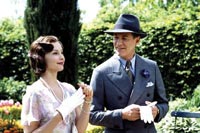
In De-Lovely that intimacy waxes and wanes to a stunning soundtrack of Porter tunes sung by some of today’s biggest stars. Elvis Costello, Robbie Williams, Sheryl Crow, Alanis Morissette, Natalie Cole and others turn in performances crackling with an enthusiasm that indicates how much Porter’s work continues to be loved and respected.
Setting this music in the context of Porter’s life has both benefits and drawbacks. On the positive side, the music is what helps us like Porter. His life was a study in excess and indulgence. His mother indulged him. His friends indulged him. His lovers indulged him. His wife indulged him. He could easily be remembered as a snobbish and pampered socialite. But he’s not. He’s remembered for his wit and insight into the predicament of being in love. How can you dislike the person who wrote the romantic ode to fidelity “Night and Day”:
“Like the beat beat beat of the tom-tom When the jungle shadows fall Like the tick tick tock of the stately clock As it stands against the wall Like the drip drip drip of the raindrops When the summer shower is through So a voice within me keeps repeating you, you, you Night and day, you are the one Only you beneath the moon or under the sun Whether near to me, or far It’s no matter darling where you are I think of you”
But the appearance of “Night and Day” in De-Lovely also illustrates the drawback to scoring Porter’s life with his own music. In preparation for a Broadway show, Porter coaches the lead actor to sing the song properly. As the two face each other and begin to sing the song together, the camera circles around Porter and the actor so that it seems they are, indeed, singing the song to each other. Later the two meet in Central Park and Porter doesn’t return home until the next morning, much to his wife’s chagrin.
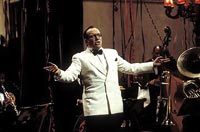
Setting his music in the context of his homosexual conquests and his mostly sexless heterosexual marriage has the potential to sour some fans of Cole Porter’s classic love songs. The contrast between his art and the love in his life becomes more overt as Linda becomes less and less willing to put up with Cole’s philandering.
The premise of De-Lovely is that Linda was always Cole’s greatest love and creative muse, but even the Linda Porter portrayed here doesn’t buy it. She is on her deathbed while Cole sits beside her and tearfully insists that all the songs were about her. She gives him that little smile that she’s perfected in the course of their marriage, the one that says “You’re lying and we both know it.” “No they weren’t,” she says. “Some of them (were about me) I hope.”
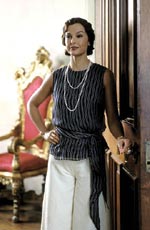
It’s easy to point to his gay affairs as Porter’s primary failing as a husband, but they weren’t his only problem. He also simply failed to take care of his wife; she took care of him and he took that for granted. He either didn’t notice or he couldn’t bring himself to do what would be necessary to take care of her in the same way. As her tolerance waned, taking care of her might have meant changing himself and curtailing his extra-marital affairs. But he was unwilling to change. As he points out, “She restored me to myself and I gave her back me. Hardly payment in kind.”
As the movie faded out, I couldn’t help but think that the “great love” of Cole Porter’s life was really himself. It was a big love, and a lot of people shared it, including Linda. Theirs was a marriage based not on mutual affection for each other, though Cole certainly did like Linda, but on their shared love for Cole. It was in the extravagant cocoon of that marriage, that he was able to create the lyrics and music that would set the world singing about love.
In that sense, all the songs really are about her.
Talk About It
Discussion starters- How should Christians think about art that is known to be born out of a sinful lifestyle? For example, Cole Porter was a musical genius, but led a decadent life. Should that affect how you view his artistic accomplishments?
- Under what circumstances, if any, could a heterosexual and a homosexual have a successful, God-honoring marriage?
- Linda Porter said, “You don’t have to love me the way I love you Cole. Just love me.” Why do you think she was willing to put up the gay liaisons of her husband? Do you think her indulgence was loving — or enabling?
- Cole Porter was unable or unwilling to distinguish his carnal behavior with his ability to create music. “It’s all the same thing,” he said. What do you think he meant? What do you think is the connection between lifestyle and creative endeavors?
The Family Corner
For parents to considerDe-Lovely is rated PG-13 for sexual content. Men hug and kiss. Cole and Linda are shown in bed together.
Photos © Copyright MGM
What Other Critics Are Saying
compiled by Jeffrey Overstreetfrom Film Forum, 07/08/04While it opened only in select cities, De-Lovely, Irwin Winkler’s new biopic about legendary songwriter Cole Porter, received ho-hum reviews in the mainstream press this week, in spite of Kevin Kline’s performance in the lead role. In the only two religious press reviews posted at this writing, there was a similar lack of enthusiasm.
Comparing this Porter biopic with 1946’s Night and Day, Michael Elliott (Movie Parables) says, “They are so far apart they are like … well, night and day. The difference is, of course, the subject of Porter’s homosexuality. It is a topic that was not broached publicly in the ’40s and so the early biography was largely fictionalized. In Night and Day, the tension that existed in Porter’s marriage was explained by his incessant workaholic nature.De-Lovely explodes that myth to build one of its own in a stylized, romanticized version of the gay Cole Porter. The convention of framing his life as a staged musical production can be intellectually accepted and understood but it is neither original nor altogether successful. Taking the appeal of his music and placing it to one side, there is little that is pleasant about watching a man traveling down a long road to a lonely, pathetic and bitter end.”
Harry Forbes (Catholic News Service) writes, “The new film is scarcely more dramatic than the first. Porter’s philandering is presented as little different from the conventional sort, and is shown to bring the couple considerable pain and regret. Ultimately, the film extols the loving over-the-years relationship which survives Porter’s transgressions.”
from Film Forum, 09/02/04Denny Wayman and Hal Conklin (Cinema in Focus) write, “The sad duplicity and failings of Cole Porter’s personal life might knock him off of some people’s pedestals, but in the pain of his struggles he reveals the depth of his inspiration. You may leave the theater sobered, but whistling a great tune!”
Copyright © 2004 Christianity Today. Click for reprint information.


